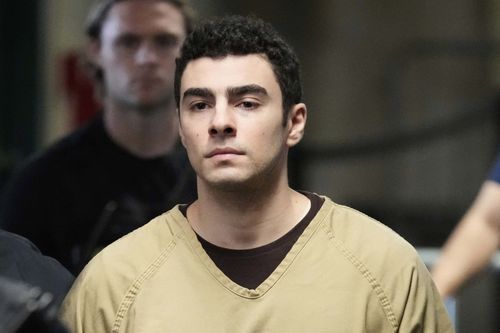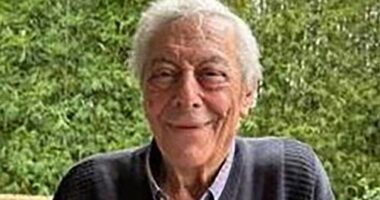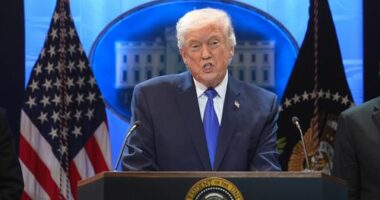Share this @internewscast.com
A judge has decided to drop terrorism charges against Luigi Mangione in the New York state case concerning the death of UnitedHealthcare CEO Brian Thompson, although the state’s charges of second-degree murder remain against the Ivy League alumnus.
Mangione’s lawyers argued that the New York case and a parallel federal death penalty prosecution amounted to double jeopardy.
But Judge Gregory Carro rejected that argument, saying it would be premature to make such a determination.

The Manhattan district attorney argues there is no issue of double jeopardy as neither of Mangione’s cases has reached trial, and the state and federal cases are based on different legal frameworks.
Mangione’s defense team claims that the concurrent cases have resulted in a “legal quagmire,” making it “legally and logistically impossible” to manage his defense for both simultaneously.
The state accusations, which carry a potential life sentence, suggest that Mangione aimed to “intimidate or coerce a civilian population,” specifically targeting insurance employees and investors.
The federal charges allege that Mangione stalked Thompson and do not involve terrorism allegations.
In April, US Attorney General Pam Bondi instructed federal prosecutors to pursue the death penalty for what she described as “an act of political violence” and a “premeditated, cold-blooded assassination that shocked America.”
The Manhattan district attorney’s office has heavily referenced Mangione’s handwritten diary entries in their court documents to support the state’s murder allegations.
They highlighted his desire to kill an insurance honcho and his praise for Ted Kaczynski, the late terrorist known as the Unabomber.
In the writings, prosecutors said, Mangione mused about rebelling against “the deadly, greed fueled health insurance cartel” and said killing an industry executive “conveys a greedy bastard that had it coming.”
They also cited a confession they say he penned “To the feds,” in which he wrote that “it had to be done.”
Mangione’s “intentions were obvious from his acts, but his writings serve to make those intentions explicit,” prosecutors said in the June filing.
The writings, which they sometimes described as a manifesto, “convey one clear message: that the murder of Brian Thompson was intended to bring about revolutionary change to the healthcare industry.”












